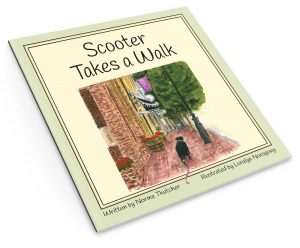
With access to 24-7 news, we can be instantly aware of the many tragic events unfolding. In the no-so-long-ago past we were most aware of happenings around our own communities and within our own families. Now it seems “local” to learn of an ice rink collapse in Germany, a nightclub fire in Romania, a ferry boat sinking in Hong Kong, as well as the myriad horrible acts that human beings commit against each other all over the world.
My view is that there actually aren’t more terrible things happening; it’s just that now we’re aware of them all.
It strikes me that this overwhelming awareness of all things bad numbs us to the point that we forget how to respond in times of close tragedy. We offer up phrases that may end up insulting or hurting the person we’re trying to help. “She’s in a better place.” “God must have needed another angel.” “This is really for the best.” None of these are helpful or consoling. I know I myself have said all those phrases in the past. We mean well, but failing to truly know what will help another person make it through a dark time, we seem to revert to platitudes.
Rabbi Harold Kushner’s book “When Bad Things Happen to Good People” tells how he faced his own personal tragedy when his son was born with progeria, a rare and ultimately fatal genetic condition that causes premature aging. Most children with this condition fail to reach their 15th birthday. When people offered him consolation as, “God never gives you more than you can handle,” the realization hit him how cruel that is. He knew first-hand the guilt feelings it caused. “If I had just been a weaker person, this wouldn’t have happened.”
We want to help others in time of trouble, so what DO we say?
Father Chris Pierce was Rector of St. James’ Episcopal Church in Warrenton, Virginia in 2008 when my son died. Father Chris served as a role model for how to help people in the midst of a tragedy. I still use his opening question when I’m trying to console someone. “How can I be with you?”
What a lovely question! It’s not telling the person how to think or act, what to do or say. It’s being open to the other person. That short question speaks volumes. Whatever you need, I’m here. If you want to be angry about this, go ahead and scream or swear or break things. Or do all three. This is a safe space. If you want to cry, here’s my shoulder and a tissue. If you want to talk, I’m ready to listen. If you want to sit in silence, take my hand and let me share that silence. Whatever you need, it’s ok.
People in the midst of a tragedy are needful of many things. Casseroles are eaten to provide required sustenance. The beautiful flowers are admired before they fade and are thrown out. But the memory of someone who was willing to just be with you will last a lifetime.
Question to my readers: What act of kindness during a time of trouble was most meaningful to you?



